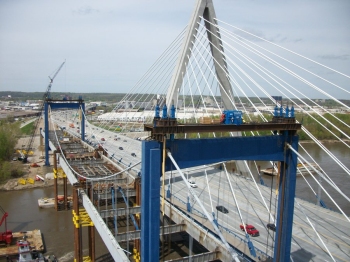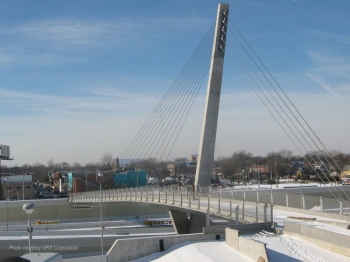Modelling with LUSAS The existing railway embankment was modelled sitting on layers of clay, weathered mudstone and mudstone. Then, staged construction modelling in LUSAS using nonlinear analysis replicated the entire construction process including the installation of the piles and pilecap; the addition of a fill layer to the level of the existing railway embankment; the installation of the concrete arch segments and initial backfilling to the top of pedestal level. This was then followed by the addition of a series of roller compacted fill layers of 0.5m thickness up to arch crown level with, finally, two, 1.5m overfill layers completing the embankment construction. During backfilling, measurements of arch deflections were taken and the LUSAS input parameters, mainly for the subsoil, were updated to understand the unexpected behaviour of the piled foundation. Excellent agreement between LUSAS and the monitoring results was found reassuring all parties that the construction method and the structure itself would be safe for the designed loading. LUSAS was used for the entire analysis and design of the 85m long Dobwalls Bypass tunnel, including the innovative and client-requested bevelled ends. For these, the options available in LUSAS for defining local axes made the designing of the bevels using Clarke-Nielsen results very straightforward.
Completed and named Sperritt Tunnel in 2010. Seremban Senawang Expressway, Malaysia This example of another installed BEBO tunnel is located approximately 1 hour South of Kuala Lumpur, serves the widening of the Seremban Senawang Expressway and the crossing of an access road. As it runs parallel to a railway, the tunnel arches could not be backfilled or overfilled in the usual manner so a Mechanically Stabilized Earth (MSE) wall was used to hold the fill in place.
LUSAS Bridge analysis software was used to assist with the design of the arches and to confirm the design of the MSE-wall and piled foundations. LUSAS was used on this project because of the number of sections that had to be investigated and because modifications to the geometry, such as angle of battered piles, could be so easily modified and re-analyzed. Results for one section along the length were cross-checked against another software package proving the Mohr-Coulomb model that was used to be adequate for this type of soil stress history.
"BEBO engineers have a lot of experience in the use of finite element analysis software, not only for the design of projects involving soil-structure interaction, but also for a variety of materially nonlinear analysis, particularly of reinforced concrete structures. To assist us with the design of our range of BEBO Arch Bridge Solutions, and for our general structural analysis requirements, LUSAS meets our needs perfectly." Gian Nick, Managing Director, BEBO Arch International AG
Find out more
Other LUSAS Bridge case studies:
|
|
Software Information
|
|||||||||||||||||||
|
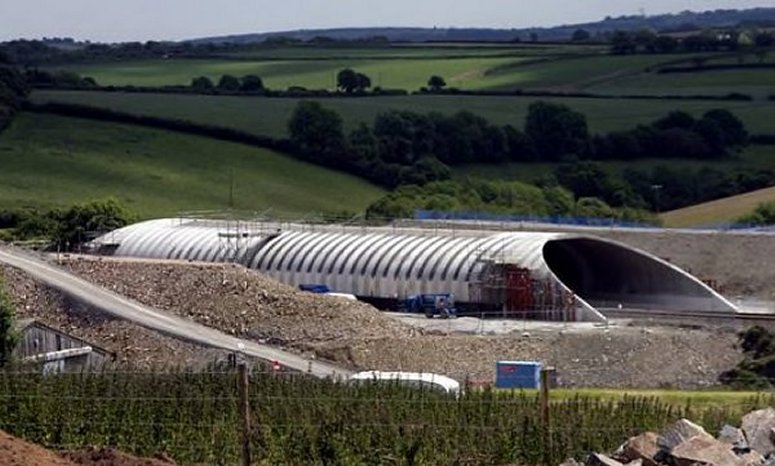
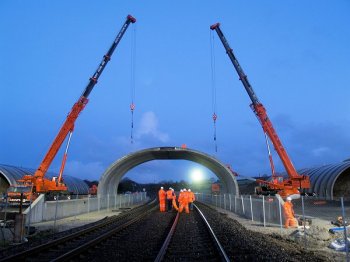
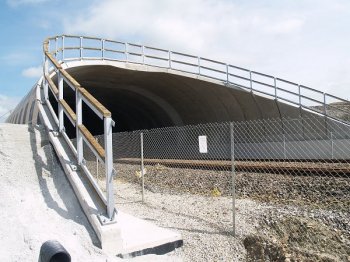
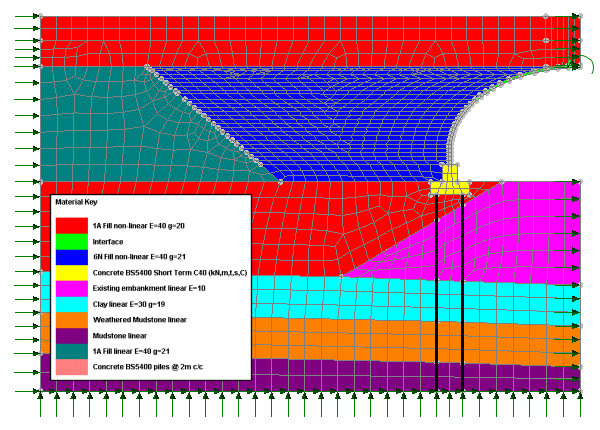
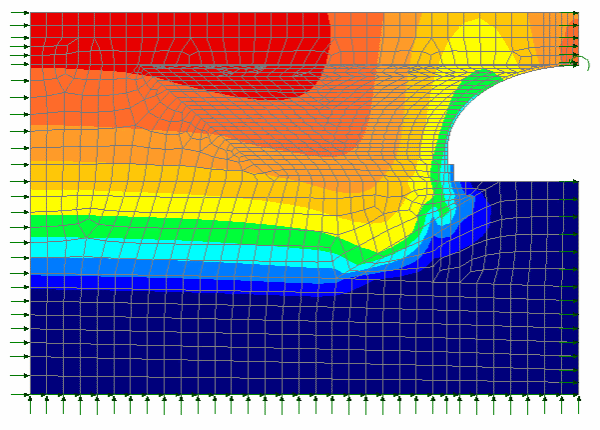
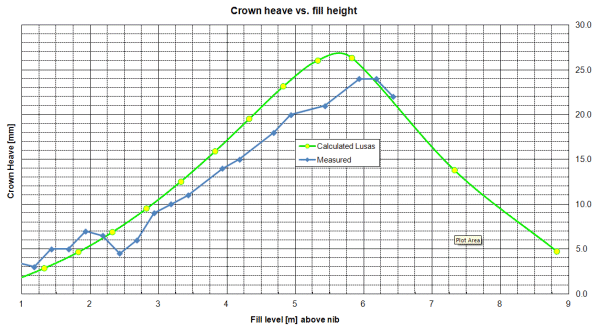
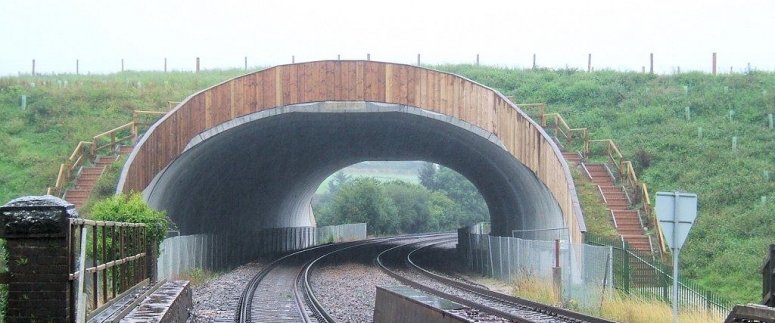
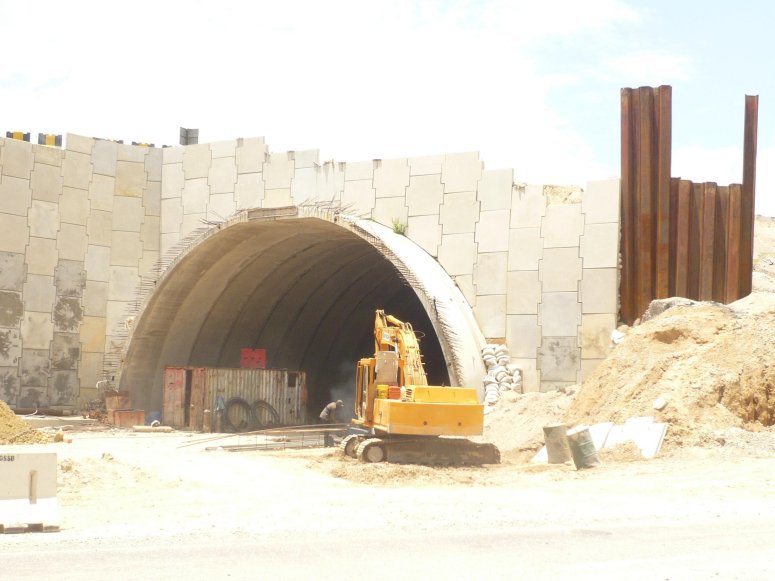
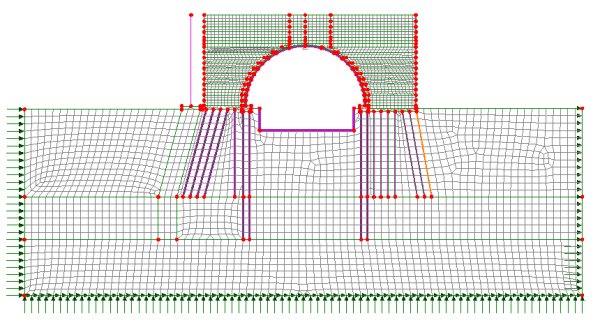
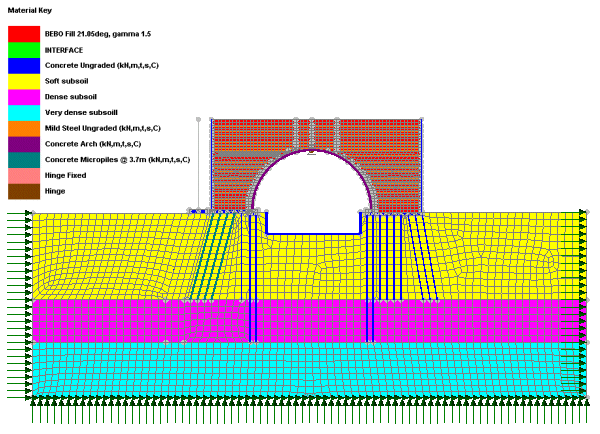
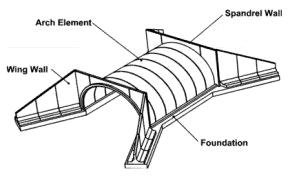 The
BEBO System
The
BEBO System